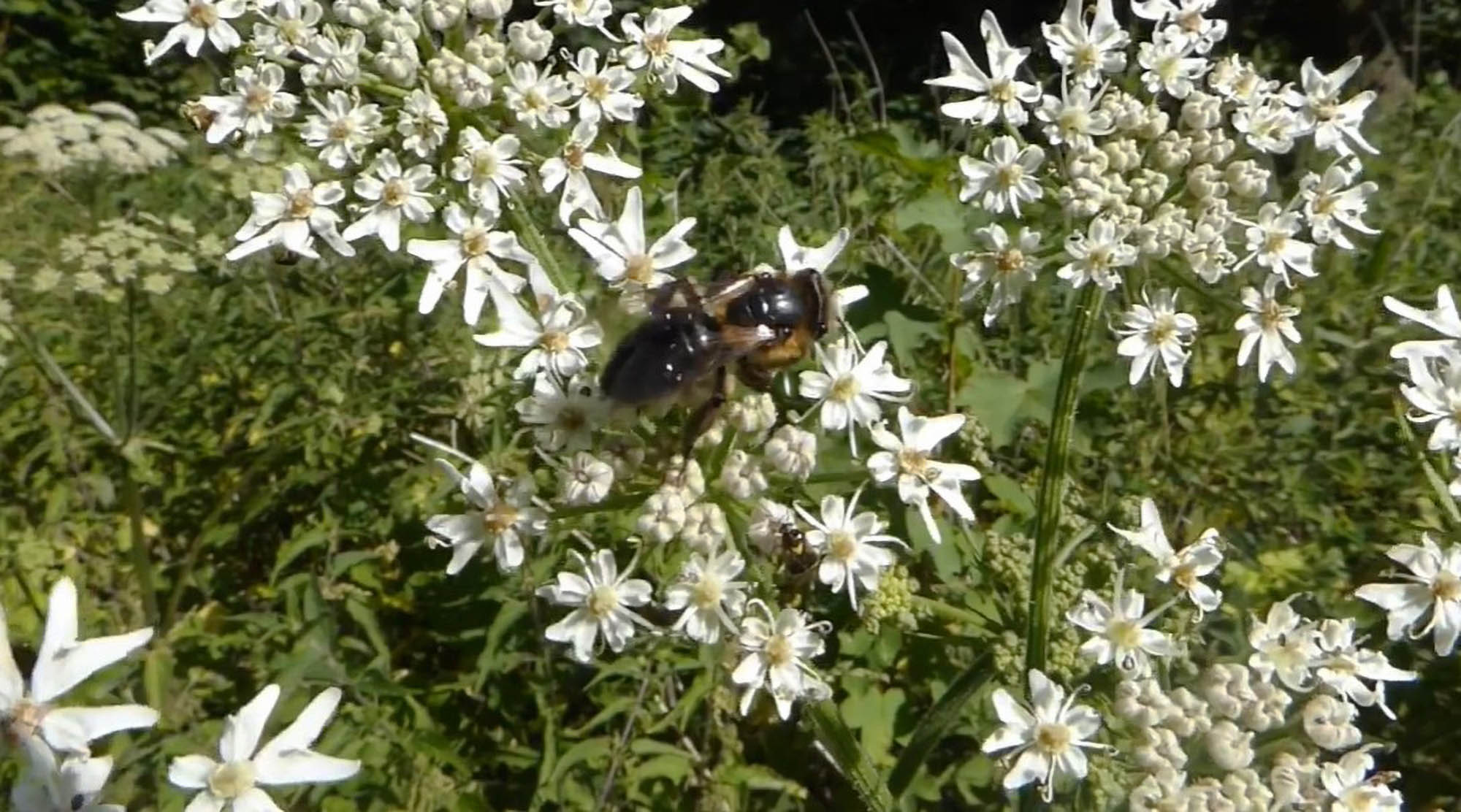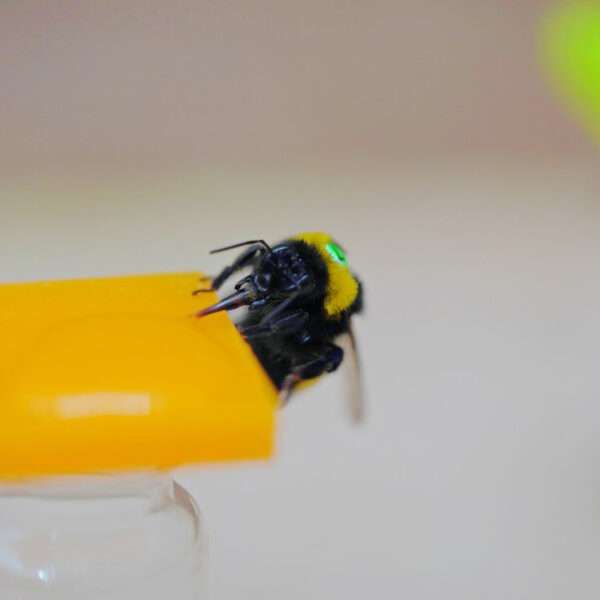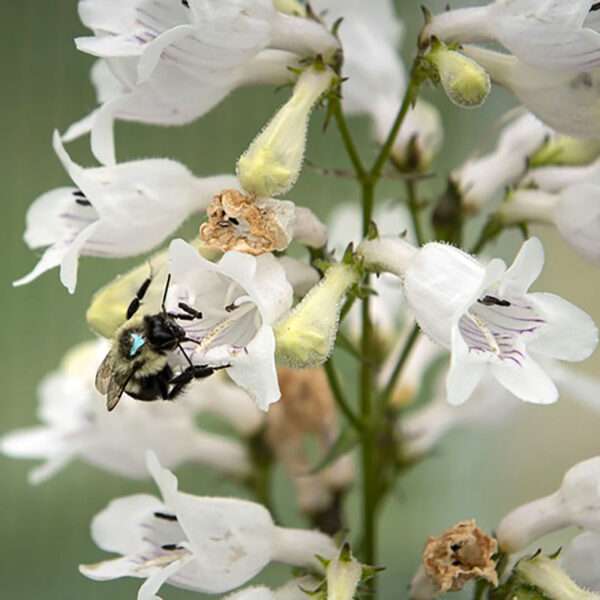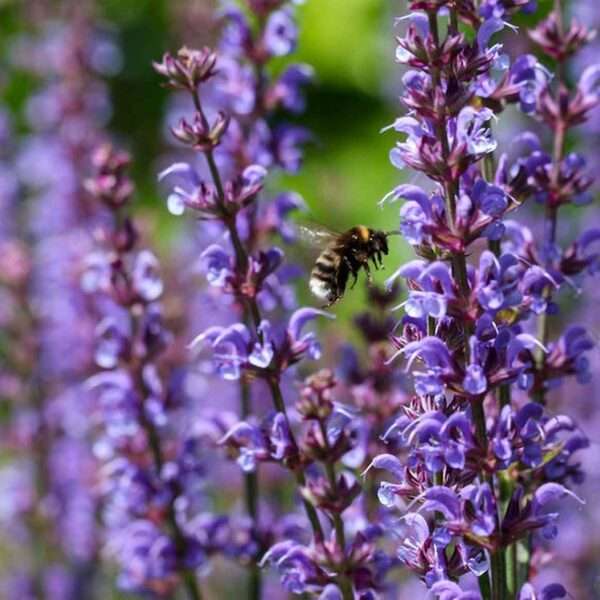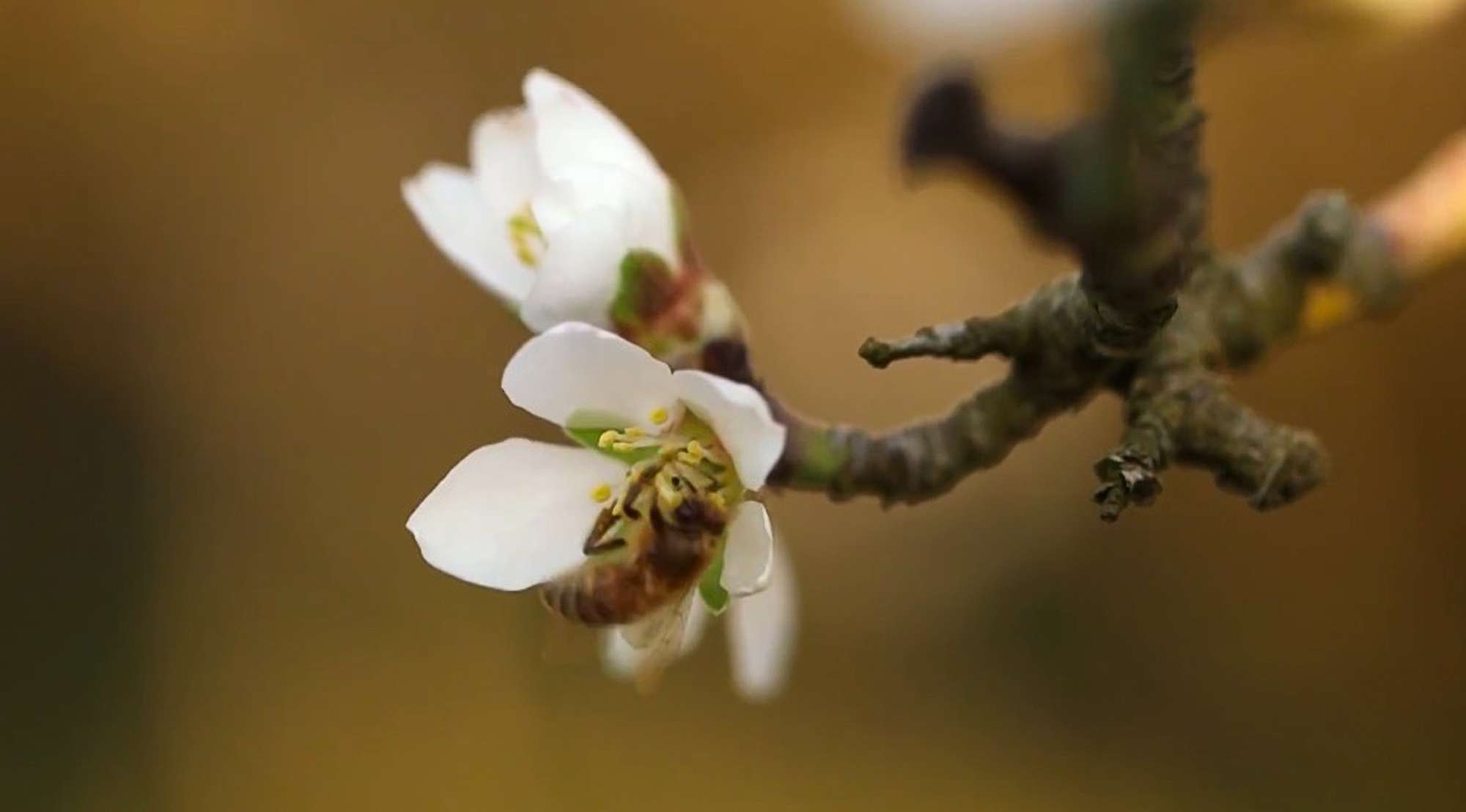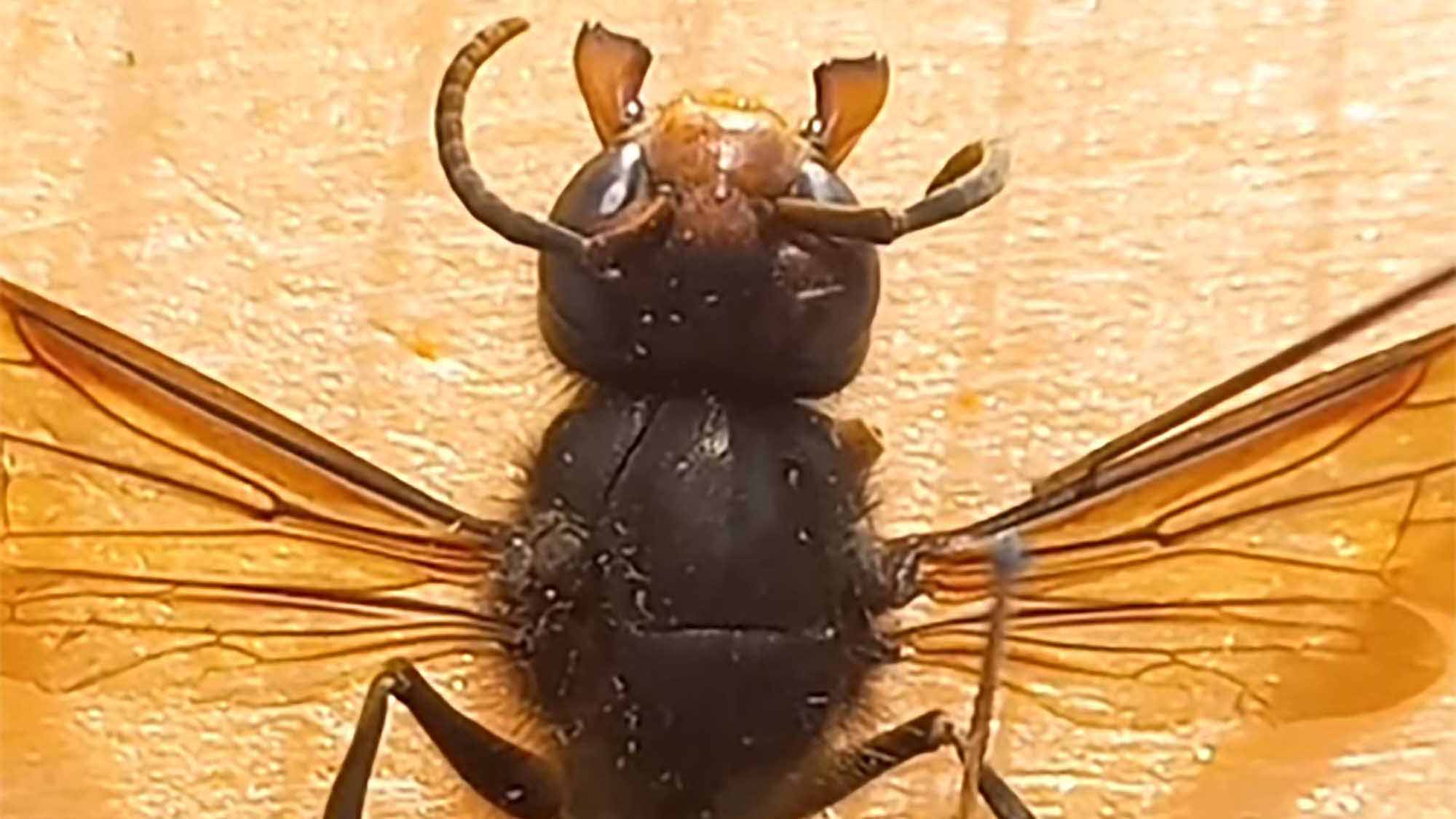Three extremely rare types of bees have been discovered at a botanical garden in Central Germany.
Experts from Göttingen University, Lower Saxony, said the insects, which had been spotted in the city’s botanical garden, belong to the Andrena genus, one of the largest groups of solitary bees.
The pollinators called Coelioxys echinatus Förster, Perkins’ Mining Bee and Andrena rosae had not been registered in the area for more than 100 years.
Wildlife conservation expert Thomas Fechtler said: “Botanical Gardens are precious hotspots for different types of animals.”
Prof Christoph Bleidorn, who heads the University of Göttingen‘s department for animal evolution and biodiversity, said 136 wild bee species were recorded in the Ballertasche, a protected area around 30 kilometres (19 miles) southwest of Göttingen.
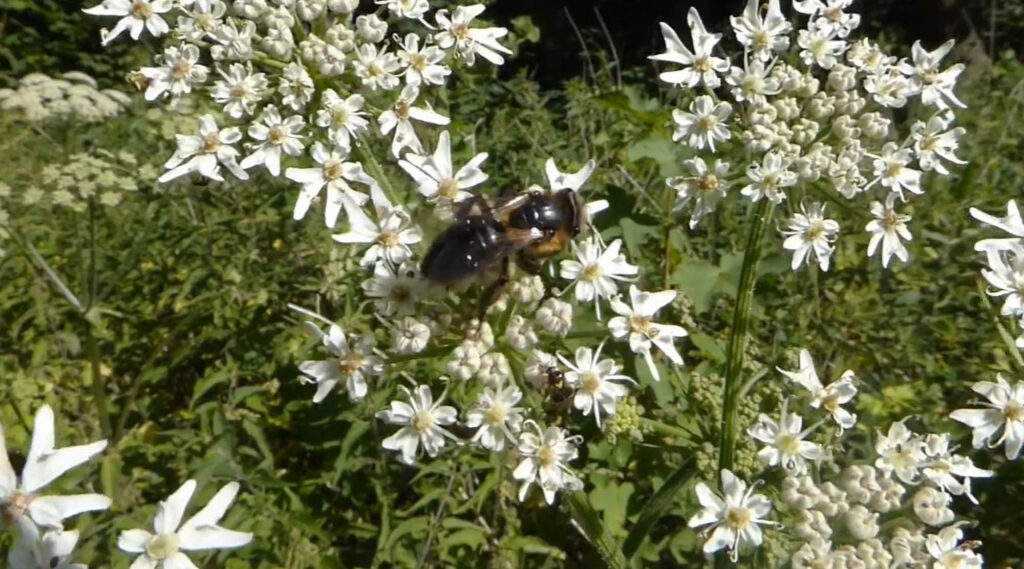
Germany is home to around 600 solitary bee species. These insects build their nests in deadwood and the soil. Several wild bee species depend on one certain plant.
The German Environment Council (Umweltbundesamt) praised solitary bees as “one of the most important pollinators.”
The organisation explained in a fact sheet on bee species: “In contrast to honeybees and bumblebees, wild bees do not attack humans. Their stinger is thin and weak.”
The German Wild Animal Foundation (Deutsche Wildtier Stiftung) added: “None of the many wild bee species is known to act aggressively as these types of bees do not defend their nests.”

